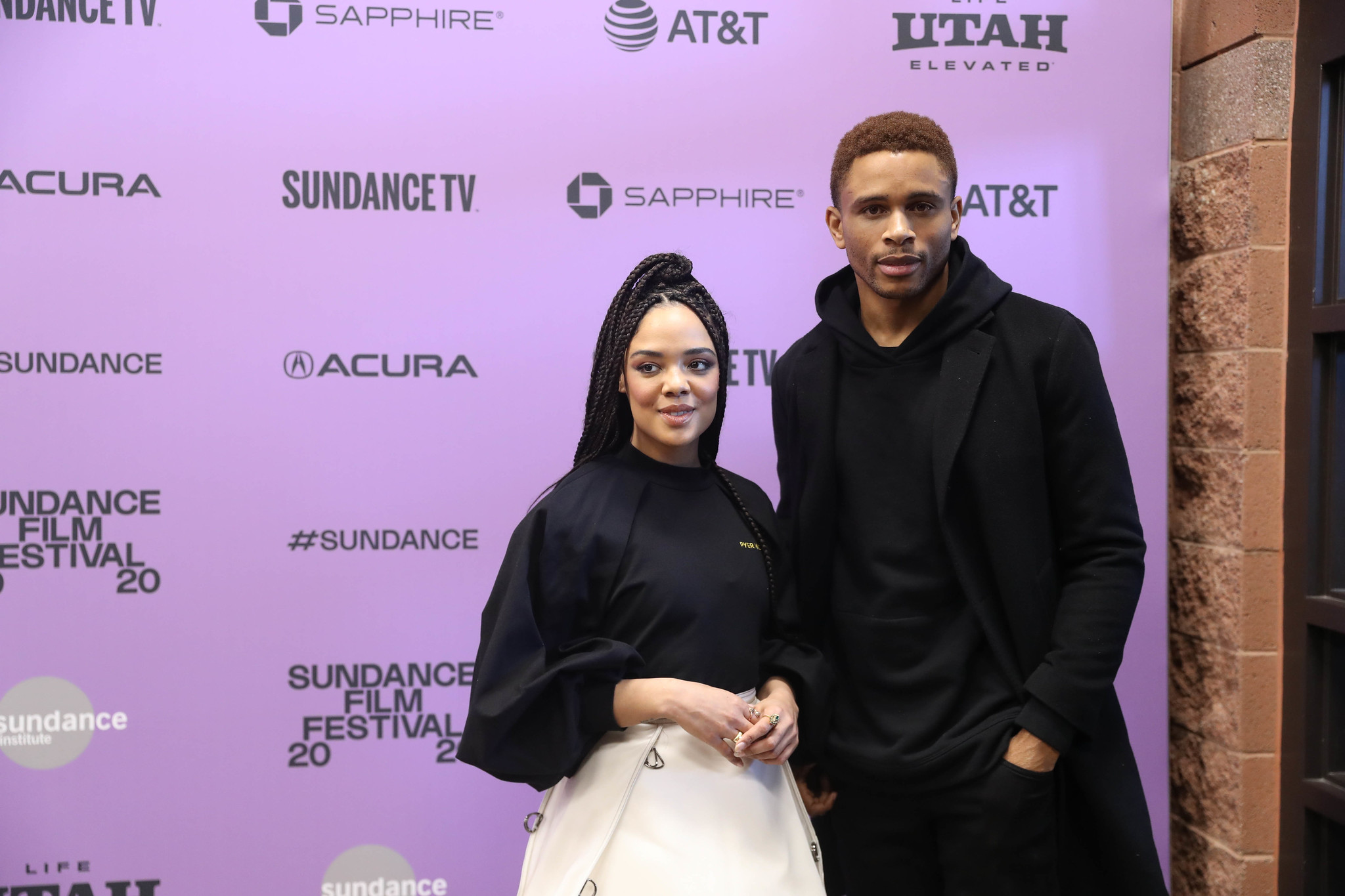Step back into 1950s Harlem with writer and director Eugene Ashe’s romantic throwback, Sylvie’s Love. It’s the kind of gentle romantic drama we don’t usually get to see in movie theaters anymore. And since the cast is made up of predominantly Black and Latinx actors, there are few romantic period pieces like it to begin with. Fortunately, more viewers will get the chance to see it soon since Amazon Studios picked up the movie after its premiere at the Sundance Film Festival.
The movie follows Sylvie (Tessa Thompson) as she accidentally crosses paths with an old ex, Robert (Nnamdi Asomugha), while waiting outside a theater. The movie then jumps back a few years to see when their relationship began, grew and eventually drifted apart. It’s an adorable summer love story that has all the warmth of a hot day in the sun. Sylvie works for her dad at a record shop, and Robert stops in to fill a job opening in his store for the chance to meet her. Even when minding the store, Sylvie’s dreams are set on a career in television, a then-unheard-of career for a Black woman at that time. His sights are set on a jazz career, one that’s starting to pick up steam when they meet.
Although she’s engaged to someone else, Robert still tries to win her over. Eventually, she realizes the way she makes him feel is undeniable, and they soon spend every possible moment together — out of her father and strict mother’s sight, of course. Unfortunately, it was not meant to last. Sylvie decides against following Robert to Paris for his next gig, and she decides to carry a new secret alone. They don’t see each other again until that fateful night at the theater, and now they must decide a second time if they will finally follow their hearts.
Sylvie’s Love strikes a similar tone as movies like The Way We Were, The Passionate Friends, Before Sunset and Brooklyn, which premiered at Sundance a few years back. The will-they-or-won’t-they-make-it suspense keeps us watching, and the movie shows how much more love they share with each other than with the other relationships in their life. As a love letter to Black romance in Harlem, Sylvie’s Love shares a few things in common with Barry Jenkins’ If Beale Street Could Talk, a film that, despite being set a few decades later, has no doubt as to whether its main characters, Tish and Fonny, would end up together someday.

Afro-Latina actress Tessa Thompson carries this movie with a cool yet vibrant energy. Sylvie’s a smart young woman whose knowledge of jazz may well be deeper than Robert’s own. Thompson more or less carries the chemistry for the couple since Asomugha’s performance is much more reserved. Her eyes light up when she begins to notice him differently, her expressions become happier, more full of laughter and smiles. She’s not one for moping around too long when the relationship doesn’t work out, as is customary for women in these movies to do. Instead, she holds her head up and soldiers on. Sylvie is like a modern career woman in vintage clothing. She stands up for herself when another man tries to tell her to quit her job to stay home and take care of her daughter. Her story is an interesting one because, while clearly affected by her emotions, she’s not ruled by them.
In addition to Thompson, Eva Longoria makes an appearance as yet another confident woman in the jazz scene. As Robert’s bandmate’s wife, her role is brief but gives Sylvie a sense of sisterhood about hanging around the band even as other women have eyes on their partners. In one of her scenes, Longoria even gets to sing and dance, performing “Quizás, quizás, quizás” against a row of matador-costumed backup dancers. Why matadors, I’m not sure, but I’ll assume it has to do with the late 50s/early 60s confusion around anything in the Spanish language. The song was originally written by a Cuban, Osvaldo Farrés, in the late 1940s.
In conversations about on-screen representation, historical period movies have been a blind spot. Many filmmakers and fans of these movies have shooed away concerns that these stories are too white because it was another time. But since Black and Brown people didn’t just appear out of thin air in the ’60s, the continued erasure of our stories and presence in these movies reaffirms our absence in history to modern audiences. If anything, it would have been nice to see more Latinos in the jazz clubs and on stage since it wasn’t uncommon for musicians of both backgrounds to play together. But Sylvie’s Love is already leaps and bounds ahead of many other movies that have almost no people of color in New York City. While Ashe’s film may have all the sweets and schmaltz of an old school romantic drama, it feels fresh and almost radical to have a period movie so focused on a Black couple with the thrill to see if they’ll live happily ever after.
Sylvie’s Love premiered at the 2020 Sundance Film Festival.







